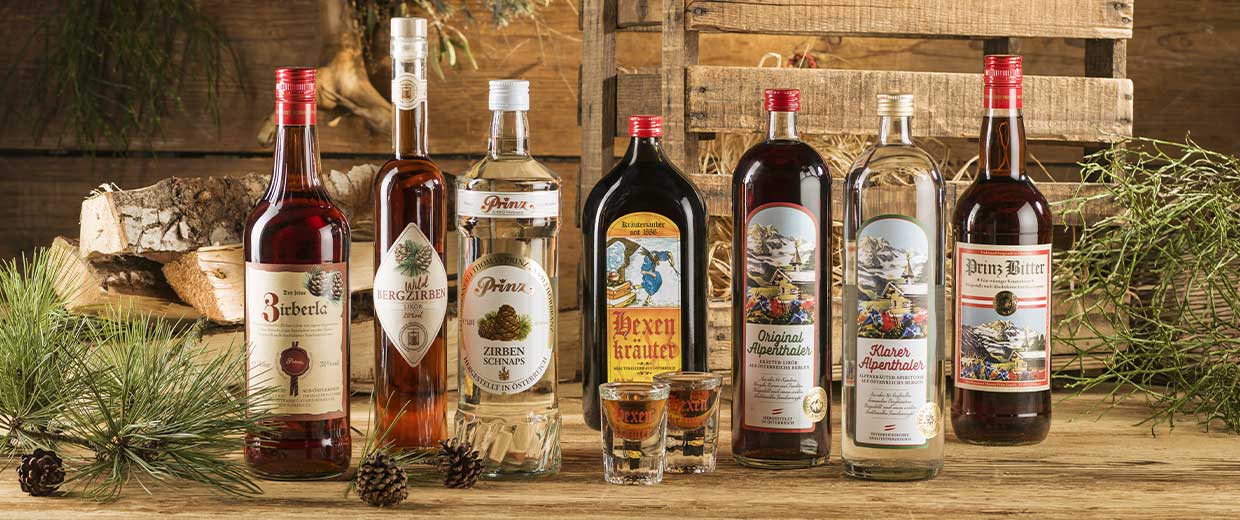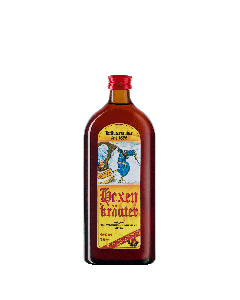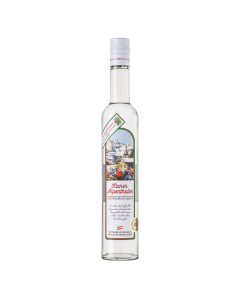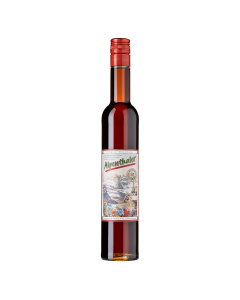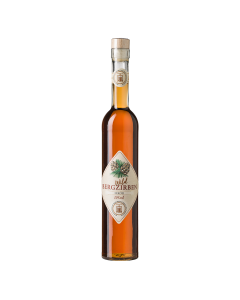-
 show more sizes
show more sizesThe bitter with the power of over 48 herbs! Burns brightly when lit.
-
 show more sizes show more sizes
show more sizes show more sizesWith the wonderfully aromatic combination of different herbal distillates.
-
 show more sizes
show more sizesMild liqueur enjoyment with select herbs from the Alps.
-
 show more sizes
show more sizesWith the unique taste of ripe pine cones from the high mountains.
Herb Schnapps & Liqueur
Enjoy the untamed nature of the Alps with delicately tart herbal schnapps and full-bodied herbal liqueurs. Breathe in the piney wind that blows from the Vorarlberg mountain forests. Taste the aromatic herbs of impassable mountain slopes. Experience the power of herbal bitters, which are traditionally drunk in Austria after a hearty meal.
Whether you choose Alpenthaler, Hexenkräuter or Swiss Stone Pine Schnapps, Prinz herb specialities are ideal as digestifs, summit drinks or for sharing in convivial company. Discover the secret of Prinz herbal specialities »
The secret of Prinz herbal specialities
Prinz Herb Schnapps & Liqueurs delight with their delicately tart spiciness and their bitter-aromatic Alpine character. This makes them excellent digestifs and a delicious summit drink that will enhance your enjoyment of a majestic mountain panorama.
Original Prinz Bitter is indispensable in Austrian, German and Swiss cuisine. Passionate cooks often enhance their sauces or flambé meat dishes and desserts with this herb-rich speciality.
The best herbal schnapps from Prinz is characterised by:
- Carefully harvested, natural herbs, roots, flowers and cones
- Ancient recipes that have been used for over 130 years
- Up to several years of cellar storage in vessels such as stoneware and glass balloons
- The traditional art of distilling combined with state-of-the-art distilling technology
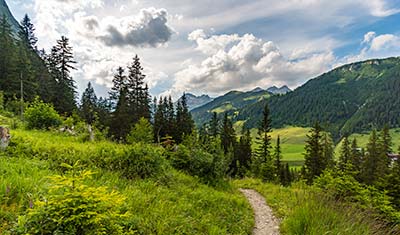

Prinz has been producing high-quality herbal schnapps for four generations
Our distillery has been producing high-quality Herb Schnapps & Liqueurs for four generations. We traditionally use herbs that thrive in mountains, forests and natural meadows. The recipes for our Prinz herbal specialities have been in the family since the 18th century. Since our great-grandfather's time, we have preserved our knowledge of herbs and passed it on from generation to generation.
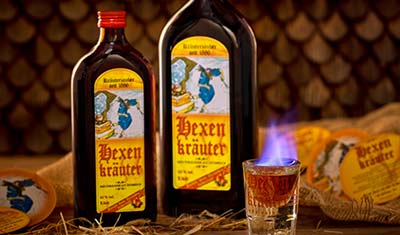

With a great love for tradition, our Prinz master distillers produce herbal spirits that give you a taste of the Alps. Each of our herb specialities is based on age-old recipes that have been in the family for over 100 years. Whether you choose Alpenthaler 20.5 % vol or the iconic Hexenkräuter, they are all filled with the flavours of dozens of different herbs, as full of character as Austria's highest peaks.
Who invented herbal bitters?
Herbal bitters have been around since the Middle Ages. With the invention of distillation, monks and healers began to prepare herbs, flowers and roots in alcohol. The drops and tinctures were then used as medicines, but herbal liqueurs were also enjoyed by noblemen after great feasts. This makes them some of the first digestifs in European drinking culture.
Prinz Herb Schnapps & Liqueurs are made from the finest nature has to offer
Many of the ingredients in our herbal specialities grow in mountainous areas that are difficult to reach or have to be painstakingly collected by hand. The herbs, roots and cones grown at high altitudes in our mountains contain many valuable essential oils and bitter substances.
Over 60 different herbs and spices serve as ingredients in our various recipes – chosen for your enjoyment and perfectly matched to each other in flavour.
Yellow gentian – Earthy and bitter-aromatic
The yellow gentian is native to the Alps, but harvesting these wild gentian roots is only allowed in a few Alpine regions. The precious root is hand-picked and delivered directly to us in sacks. We mainly use gentian from the spring harvest, and this has a dense, strong, earthy and deep flavour. Gentian harvested in autumn, however, is characterised more by floral notes. After the roots have been washed, we put them first in yeast and then in alcohol before gently distilling the macerate. The distillate reveals a stimulating interplay of earthy notes and bitter-aromatic spiciness on the palate.
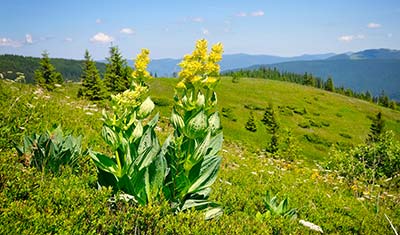

Masterwort – Mineral and minty
Masterwort only grows in the Alps at over 1,400 metres above sea level. It loves sunny steep slopes and smells of carrots and celery. Its root is harvested by hand after flowering in autumn, then carefully cleaned and macerated in alcohol. The distillate smells mineral, tastes distinctive and has a surprising fresh mint note.
Swiss stone pine – Pleasantly resinous and fresh
On an Alpine hike, you might encounter Swiss stone pine trees, which can be up to a thousand years old. The "Queen of the Alps" is found at altitudes from 1,300 metres up, and her highly aromatic cones are harvested from the end of June to the beginning of July – this is when they are still soft and juicy. But the cones can only be picked from the treetops by hand, a laborious task that requires experienced pickers to climb trees up to 25 metres high.
Once collected, we cut the fresh pine cones into small pieces and soak them in alcohol. The resulting red-brown mixture is used as an ingredient for Swiss Stone Pine Liqueur or is gently processed into Swiss Stone Pine Schnapps. Each sip recalls the elation of the last ascent to the summit – a true Alpine pleasure.
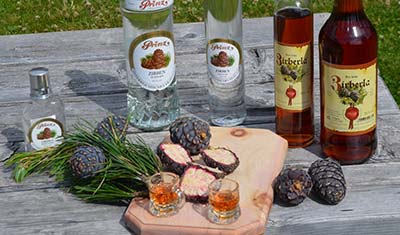

Preparing herbs, distilling, storing – everything takes time
We process the ingredients from the rugged countryside according to our well-guarded recipes. Herbs and blossoms are macerated in alcohol according to old Austrian tradition, taking from two weeks to three months for the valuable essential oils and bitter essences to be completely absorbed.
Depending on the recipe, we either distil an intense, clear herbal schnapps or refine the matured batch into a delicious herbal liqueur. For schnapps, the potent herbal distillates are left to rest in our storage cellar. We leave them to mature for from two to four years in stoneware vessels or glass balloons which allows the spiciness and character of the herbs to optimally develop.
For our herbal liqueurs, after maceration, we strain the herbal mixtures and store them in stoneware or glass balloons for several months to several years. Only when the desired spiciness and bitterness have developed is the herb mixture processed into liqueur.
Prinz Herb Schnapps & Liqueurs enjoyed the right way
Store in a cool place for long-lasting enjoyment
Unopened, Prinz's clear bitters and herbal liqueurs will last for many years. Opened, they will taste as good as the first day for many months if stored correctly. Herbal specialities are best enjoyed within one or two months after opening.
Important: After opening, reseal herbal schnapps and bitters, storing them in a cool, dark place. Herbal liqueurs are best placed in the refrigerator as oxygen, sunlight, heat and temperature fluctuations can change the taste over time.
How to taste Prinz herbal bitters at their best!
The wonderful spiciness and fine bitter taste ideally develop at room temperature. Serve herbal bitters in a Stamperle to enjoy the Alpine lifestyle with your loved ones, sip by sip.
Which foods do Prinz herb specialities go best with?
Prinz Herb Schnapps & Liqueurs go well with all types of food, frequently used as the perfect finale to a hearty meal. That's why in Austria, Germany and the Netherlands we like to drink them as a digestif. In parts of Switzerland, bitters are enjoyed as an aperitif, i.e. before the meal.
In mountain shelters, people traditionally celebrate a successful ascent with a summit drink – often a schnapps. The special thing about this is that schnapps and liqueurs develop their flavour differently depending on the altitude, which is why a mountain-top shot is always an unforgettable experience.
Which Prinz herbal liqueur is suitable for flambéing?
Prinz Hexenkräuter consists of 48 % vol and burns like a torch, making it ideal for flambéing. The heat of the flame caramelises the sugar in the liqueur – this gives both the Hexenkräuter and the flambéed food a sophisticated caramel note. In addition, the blue flame creates a romantic atmosphere.
Everything you want to know about herbal bitters
What are herbal bitters?
Herbal bitters – or digestive bitters – are spirits made with herbs that taste bitter. To qualify as bitters, their alcohol content must be above 15 % vol. Liquor connoisseurs like to drink bitters between meals, after a nice mountain hike, or as a digestif.
What is a half-bitter?
Herbal bitters with a pronounced sweetness belong to the category of liqueurs. That is why they are also called half-bitter in German-speaking countries.
What types of bitters are there?
Typical Vorarlberg bitters with an abundance of regional herbs include Prinz specialities such as Alpenthaler and Hexenkräuter. Swiss stone pine spirits, on the other hand, are a particular speciality, containing fresh cones of the Swiss stone pine tree as the main ingredient.
What is the difference between herbal schnapps and herbal liqueur?
For authentic herbal schnapps, we prepare selected herbs, roots, flowers and cones in alcohol. We distil the finished mixtures and then store them in stoneware, glass balloons or steel tanks, depending on the product. These herbal distillates form the basis for our pure herbal schnapps.
Herbal liqueurs, on the other hand, additionally contain herb mixtures that have been stored for several months to several years. In contrast to the clear herbal schnapps, this gives them a reddish-brown to earth-coloured tone. We enhance the liqueur to a natural sweetness with ingredients such as honey in order to balance out the bitter notes in the herbal extracts.
Buy the best Herb Schnapps & Liqueurs at Prinz
Pour the spirit of the Alps into your glass with Prinz. Enjoy a culinary trip to Austria's peaks with friends and family, or visit our Distillery Shop in Hörbranz to taste the flavour of fresh herbs, glass by glass.
Zum Wohl!


